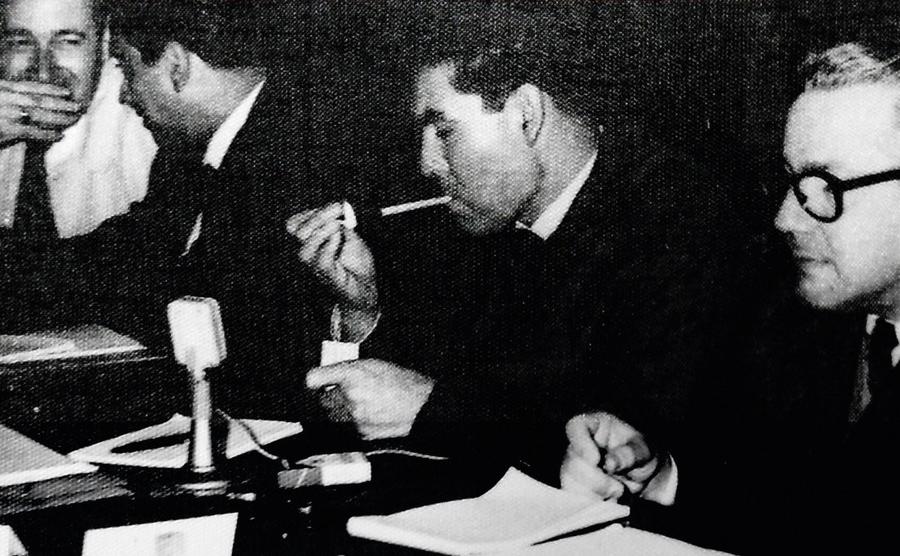Type d'événement, date(s) et adresse(s)
Débats du CAKQu'est-ce qu'une guerre froide académique ?
Séance 2, saison 16

Pour cette séance, nous invitons Vania Markarian (Archivo General de la Universidad de la República) à présenter son ouvrage Universidad, revolución y dólares. Dos estudios sobre la Guerra Fría cultural en el Uruguay de los sesenta (Debate, 2020) et à débattre avec deux discutant.e.s et l'ensemble de l'auditoire.
Discutant.e.s : Rafael Mandressi (CNRS, CAK) [en remplacement de Nicolas Ellison - EHESS, CERMA] et Antonella Romano (EHESS, CAK)
► Séance en anglais (sans traduction) et français
► Format hybride : Vania Markarian interviendra à distance (Uruguay)
► Activité ouverte à toutes et tous, sans inscription, dans la limite des places disponibles (100 places) et dans le respect des gestes barrières
► Suivie d'un cocktail déjeunatoire
L'ouvrage
How are scientific activities funded in a country like Uruguay? What happens when foreign governments and international organizations offer their money? And what happens when their proposals are rejected? What did academic communities think of these matters in the 1960s? What were their options? Who did they take money from and what did they use it for? Can you practice science in times of political radicalization? What did all this have to do with the creation of a leftist coalition in 1971?
Vania Markarian posits all these fundamental questions for understanding Uruguayan history in the second half of the twentieth century. She brings to life a few high-profile men of science and letters of these times, together with their young students, journalists, editors, cultural entrepreneurs, activists, political leaders, and a few itinerant international civil servants. Their passions, convictions, strategies, and contradictions are part of this story. Even the CIA shows up in this thick plot of interests and disappointments.
It is fascinating to learn that these encounters led to several original plans on the meaning and purposes of knowledge institutions in peripheral countries. However, it is also disturbing to find out that these plans could not be implemented and that their authors had to wait years to even mention this possibility.
All this happened in Uruguay over five decades ago, in Cold War times, and this is the matter of this book.
► En savoir plus sur Vania Markarian